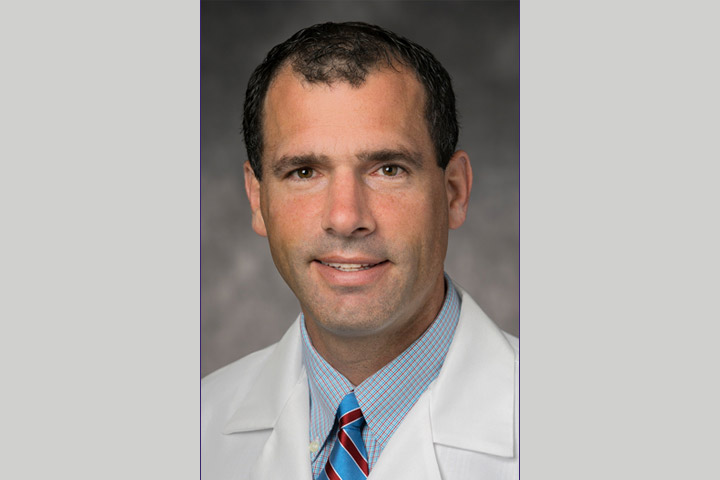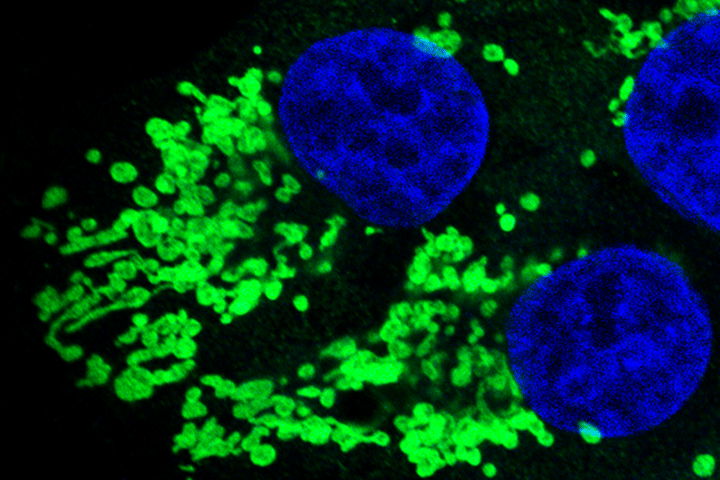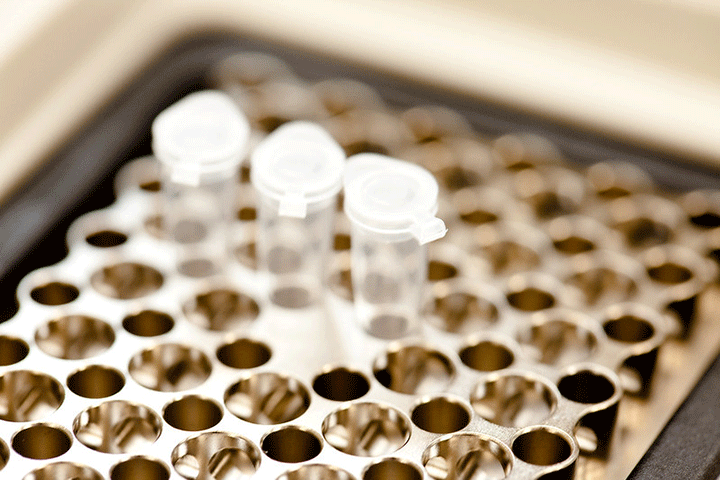Targeting Metabolic Vulnerability

Cancer cells are profoundly different than normal cells.
They grow and divide more quickly. They invade healthy tissue and, unfortunately, they outlive their healthy counterparts. What makes cancer cells so seemingly different from normal cells—and sometimes seemingly indestructible—is in no small part due to their metabolism. Metabolism is the web of biochemical processes that keep living things alive to fight another day.
All living things—humans, reptiles, and bacteria, to name a few—require fuel to boost their metabolism. Cancer cells are certainly no exception. Actually, the survival of any cell, whether healthy or malignant, requires that all these complex metabolic processes remain in a state of balance. If there is a change in the delicately balanced environment in which they live, and any cell is deprived of a nutrient, that cell will turn to other metabolic pathways for survival.
It turns out that cancer cells are masters of metabolic survival, which is why the study of cancer metabolism is taking on a new urgency. This is especially true in the area of pancreatic cancer, where new treatments are desperately needed to improve long-term survival. “Metabolism is fundamental to life, and if you can find a way to inhibit or impair that biological process, you have a new target, a new way to treat cancer and kill off those cancerous cells,” explains surgical oncologist Jordan Winter, M.D., Chief of Surgical Oncology at University Hospitals Cleveland Medical Center and Director of Surgical Services, University Hospitals Seidman Cancer Center.
Also professor of surgery and biochemistry at Case Western Reserve University School of Medicine and a member of the GI Cancer Genetics Program at the Case Comprehensive Cancer Center, Winter is recognized nationally for his clinical, teaching, and research expertise in pancreatic cancer. And as a physician-scientist, he knows all too well how much work still needs to be done in making pancreatic cancer more treatable. “For too few patients surgery is the only hope for a potential cure, so the real goal is to get all pancreatic cancer patients into the best treatments possible. What we need is better overall treatment, and learning more about pancreas cancer metabolism can potentially provide us with new and actionable targets,” he says.
Surviving Harsh Conditions
With support from the National Institutes of Health (NIH) and the American Cancer Society, Winter and his colleagues are researching the role of a tiny protein called HuR. HuR is a kind of survival protein, a regulator of metabolism that can be found in pancreatic and other cancers.
One hallmark of pancreatic cancer is that the malignant cells not only survive but seemingly thrive in a microenvironment fraught with low levels of oxygen and nutrients like glucose and glutamine, which are tasty treats for other types of cancerous cells. This adaptability also makes pancreatic cancer cells notoriously difficult to kill with current chemotherapeutic agents. “Pancreatic cancer cells are kind of like a cactus surviving the desert,” Winter says. “The microenvironment is hostile, pancreatic cancer cells have limited access to oxygen and other nutrients. In theory you wouldn’t expect cells to survive, but pancreas cancer cells are very adaptable. And HuR helps them survive.”
Through investigations in tissue culture and mouse models of pancreatic cancer, Winter’s group’s research, as well as the research of others, has shown that HuR supports pancreatic cancer survival under these harsh conditions due to its regulation of a metabolic enzyme called IDH1, or isocitrate dehydrogenase. The IDH1 protein helps break down nutrients for energy and protect cells from harmful molecules. Mutations, or changes, in the IDH1 gene have been found in some types of cancer, including acute myelogenous leukemia and some brain cancers. These changes may cause abnormal cells, including cancer cells, to grow and spread in the body, according to the National Cancer Institute. However, the normal version of IDH1, without mutations, seems to be especially important for pancreatic cancer.
“The simplest way to think about all of this is that pancreatic cancer cells can’t survive the conditions they find themselves in without HuR,” Winter explains. “We analyzed which targets of HuR would be most important and that turned out to be IDH1 since it is under HuR’s control. We’ve spent the last few years targeting this enzyme and validating its importance while identifying mechanisms that keep it alive.”
The end goal of this translational research is to design new therapies that specifically target this complex molecular interaction. If successful, pancreatic cancer cells will fail to thrive under stressful metabolic conditions and die. Normal healthy cells, in theory, will be spared because they do not face the same harsh conditions. The lab is already testing a novel small molecule inhibitor targeted to IDH1 and early results look promising. The hope is to get the inhibitor into clinical trials later this year if all goes well.
An Intersection of Disciplines
Winter splits his time between translational research and clinical care. He is considered a national leader in the surgical management of pancreatic and related cancers. He has also authored more than 100 peer-reviewed articles and numerous book chapters.
“I cut my teeth in the cancer biology world while in my surgical residency at Johns Hopkins,” Winter says. “I wanted really good research exposure and I certainly got that while at Hopkins working in Scott Kern’s lab, and being exposed to incredible work being done in pancreas research by Bert Vogelstein and others. I thought pancreatic cancer was extremely challenging, and I like a challenge. I believe real innovation most often happens at the intersection between specialties and areas of expertise, and I see the chance to contribute to advancements in pancreas cancer.”
Some answers to the riddle that is pancreatic cancer may lie in a better understanding of the metabolic drivers of the disease. Sophisticated research papers over the last five years, better technologies allowing deeper dives into the fundamental metabolic biology of the disease, and a commitment by pharmaceutical players interested in cancer metabolism, have given this area of research a newfound urgency, Winter adds.
“We have figured out that when you treat pancreas cancer with chemotherapy under low nutrient conditions, the chemo doesn’t work; it’s less effective, it’s resistant,” he says. “Normal cells are killed and cancer cells do well. This is the opposite to what we actually would like to happen. But IDH1 seems to be a great metabolic vulnerability. When we target this enzyme, the normal cells do well, while the cancer cells suffer, and that’s why we’re excited.
“If you can target those survival pathways there is an intrinsic therapeutic window implicit in that investigation. So actually, I have never been more excited with any scientific endeavor. We are curing some mice of cancer. We are slowing tumor growth in all so far. We have to do some combination studies, but we know in vitro that inhibiting IDH1 enhances chemotherapy’s efficacy.
“If all goes as planned we will get into trials within the next 18 months. Pancreatic cancer patients need better treatments, and this is how we can contribute.”





